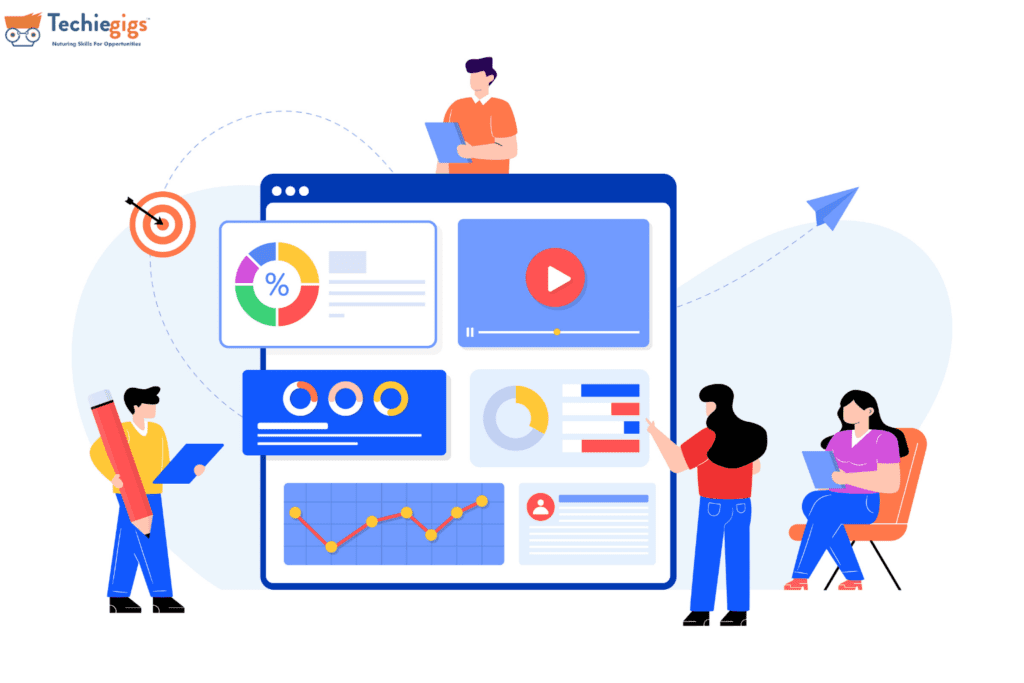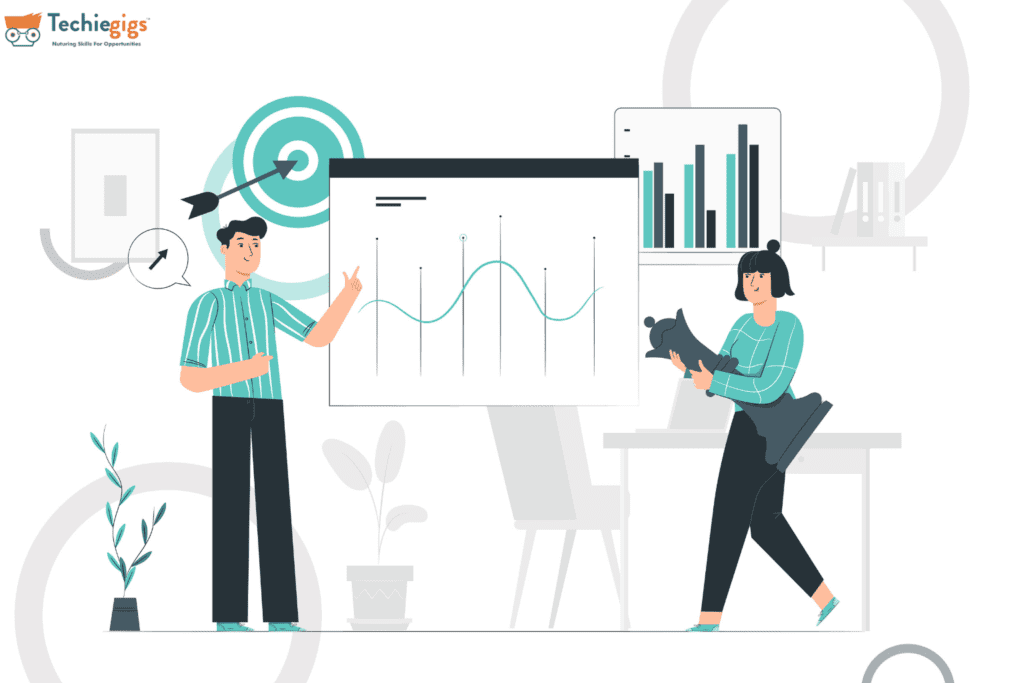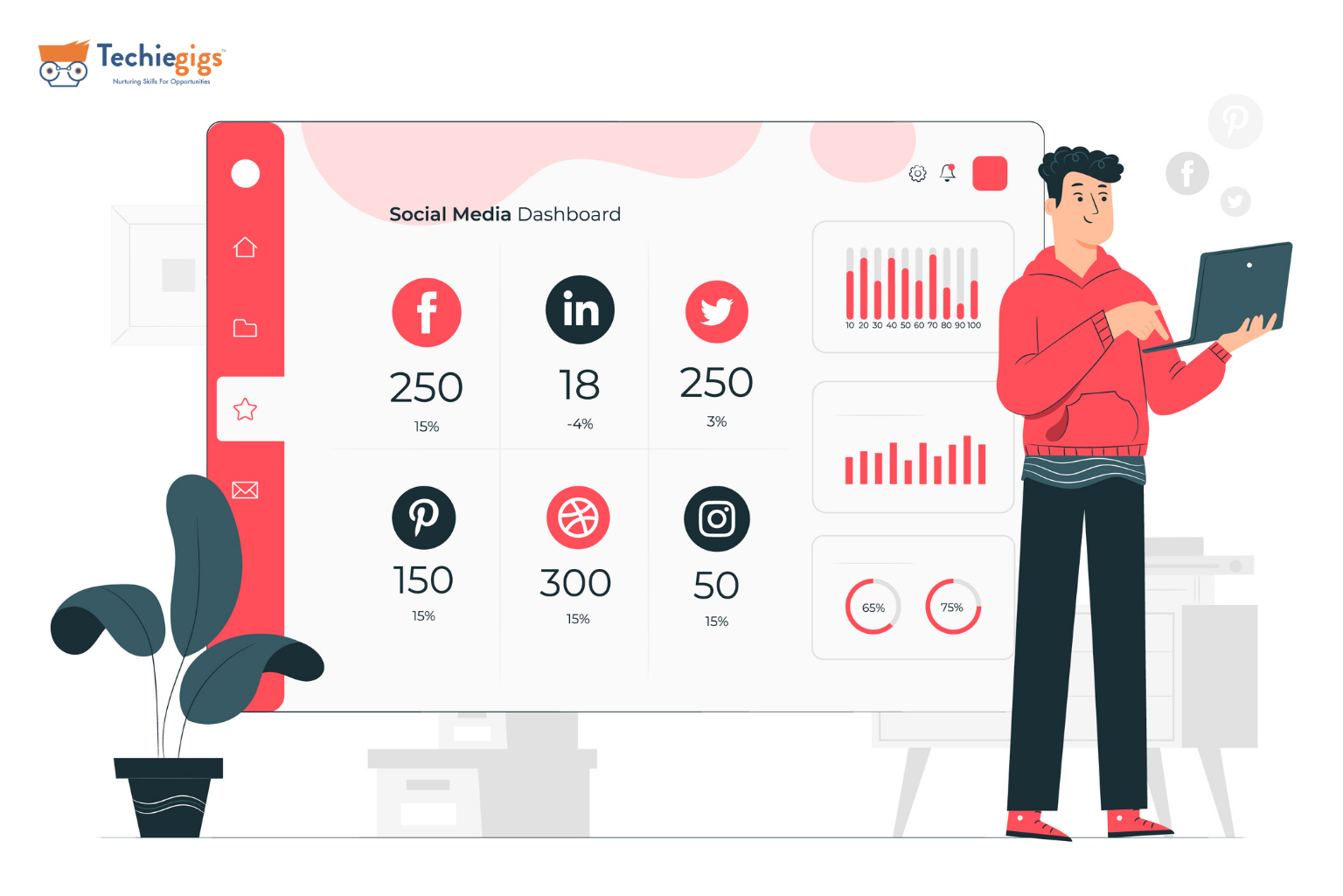In today’s fast-paced digital landscape, Social Media Analytics has become a game-changer for businesses striving to stay ahead. For instance, a recent study by Sprout Social revealed that 72% of marketers consider analytics crucial for measuring campaign success and optimizing future strategies. By leveraging data-driven insights, brands can optimize their strategies, understand their audience better, and achieve measurable success. In this blog, we’ll explore the critical role Social Media Analytics plays in modern marketing and how you can harness its potential to drive growth.
What Is Social Media Analytics?
Social Media Analytics refers to the process of collecting, analyzing, and interpreting data from social media platforms. It involves tracking metrics such as engagement, reach, impressions, clicks, and more to evaluate the performance of campaigns and identify areas for improvement. By understanding these insights, businesses can refine their social media strategies and make impactful decisions that lead to better outcomes.
Beyond just numbers, Social Media Analytics provides actionable intelligence. For example, businesses can identify peak posting times for their audience, ensuring maximum visibility and engagement. This can lead to better content scheduling and improved interaction rates. For instance, it can highlight the type of content your audience prefers, the times they are most active, and the platforms where your brand has the greatest influence. This information is invaluable in crafting tailored marketing campaigns.
Why Is Social Media Analytics Important?

Real-World Example: One notable example is Netflix. By analyzing its social media metrics, the streaming giant identifies viewer preferences and promotes shows that resonate most with its audience, boosting engagement and subscriptions.
In the healthcare industry, a telemedicine company used Social Media Analytics to identify which platforms their target audience frequented most. By focusing their efforts on Facebook and Instagram, they saw a 40% increase in appointment bookings.
In education, a university analyzed student engagement on their social media channels. By identifying the types of posts students interacted with most—such as alumni success stories—they optimized their content strategy, leading to a 25% increase in enrollment inquiries.
1. Informed Decision-Making
With Social Media Analytics, businesses can make smarter decisions by understanding which strategies are working and which need adjustment. It provides a clear picture of what resonates with your audience. Whether it’s choosing the right platform to focus on or deciding the type of content to produce, analytics ensures that every decision is backed by data.
2. Understanding Audience Behavior
Knowing your audience is key to creating meaningful content. Social Media Analytics uncovers insights into demographics, preferences, and online behaviors, allowing you to tailor your approach for maximum impact. For instance, if your analytics show that your audience engages more with video content, you can prioritize video creation to enhance engagement.
3. Competitor Analysis
Case Study: Coca-Cola vs. Pepsi. Coca-Cola often studies Pepsi’s social media campaigns to refine its marketing strategies. For example, when Pepsi’s hashtag campaign gained traction, Coca-Cola countered with its own engagement-focused strategy, maintaining its competitive edge.
Another example comes from the nonprofit sector, where a charity organization analyzed social media trends to determine which causes resonated most with their audience. By focusing on emotional storytelling in their campaigns, they saw a 50% increase in donations within three months. Analyzing competitors’ performance through Social Media Analyticshelps identify industry trends and uncover opportunities to outperform rivals. For example, a clothing brand might study a competitor’s successful campaigns to understand which types of promotions or hashtags drive the most engagement.
By adapting these insights, they can refine their own strategies to attract more customers and improve campaign performance. For example, by studying the strategies of top competitors, you can adapt successful elements while avoiding their pitfalls. This gives your business a competitive edge.
4. Improved ROI
Example: A small e-commerce business leveraged Social Media Analytics to discover that Instagram ads yielded a higher conversion rate compared to Facebook ads. By reallocating their budget accordingly, they achieved a 25% increase in sales within a month. By optimizing campaigns based on analytics, you can allocate resources more effectively, ensuring a higher return on investment. For instance, knowing which ads perform best allows you to focus your budget on the highest-performing campaigns, thereby maximizing your marketing spend.
Key Metrics to Track in Social Media Analytics

To fully leverage Social Media Analytics, focus on tracking these essential metrics:
- Engagement Rate: Measures likes, shares, comments, and clicks. This metric indicates how well your audience interacts with your content.
- Reach and Impressions: Tracks how many users see your content. Reach refers to unique viewers, while impressions count all instances of exposure.
- Click-Through Rate (CTR): Evaluates the effectiveness of your call-to-action (CTA). A high CTR indicates that your content is compelling enough to drive user actions.
- Conversion Rate: Indicates how many users take the desired action, such as signing up for a newsletter or making a purchase. This is a direct indicator of campaign success.
- Sentiment Analysis: Tracks the tone of audience reactions to your content—positive, neutral, or negative—helping you gauge brand perception.
Tools for Effective Social Media Analytics
Several tools can simplify the process of gathering and analyzing data. For instance, Google Analytics excels in tracking website traffic originating from social media and offers in-depth insights into user behavior. Hootsuite Analytics is ideal for managing multiple platforms, providing detailed comparisons of metrics. Sprout Social stands out with its advanced reporting features, especially for audience demographics and engagement trends. Meanwhile, Facebook Insights is perfect for businesses focused on their Facebook presence, delivering platform-specific metrics. For reputation management, Brandwatch offers comprehensive sentiment analysis and brand mention tracking. Each tool comes with varying pricing options, so businesses should evaluate based on their specific needs and budget.
- Google Analytics: Tracks website traffic from social media and provides detailed reports on user behavior.
- Hootsuite Analytics: Provides insights into performance across multiple platforms, allowing you to monitor and compare metrics in one place.
- Sprout Social: Offers advanced analytics and reporting features, including audience demographics and engagement trends.
- Facebook Insights: Delivers platform-specific metrics for business pages, including reach, engagement, and follower growth.
- Brandwatch: A tool for tracking brand mentions and sentiment across social platforms, useful for reputation management.
How to Use Social Media Analytics to Optimize Your Strategy
1. Set Clear Goals
Define measurable objectives such as increasing engagement, driving website traffic, or boosting sales. Social Media Analytics will help track progress and refine your strategy. For instance, if your goal is to increase engagement, you can monitor metrics like comments, shares, and reactions to gauge success.
2. Identify the Best Content
Analyze which posts perform well and replicate their success. Use Social Media Analytics to determine optimal posting times and formats. For example, you might find that posts with images perform better on Instagram, while text-heavy posts gain traction on LinkedIn.
3. Conduct A/B Testing
Experiment with different headlines, images, and CTAs. Social Media Analytics can pinpoint what works best, enabling you to fine-tune your content. For example, testing two versions of an ad can reveal which one generates higher click-through rates.
4. Monitor Trends

Stay updated with the latest trends in Social Media Analytics to adapt your strategy accordingly and maintain a competitive edge. By identifying emerging patterns, such as increasing video consumption, you can adjust your content strategy to meet audience preferences.
5. Improve Ad Targeting
Analytics can help refine ad targeting by revealing which demographics engage most with your content. This ensures that your ads reach the right audience, improving their effectiveness and ROI.
Benefits of Using Social Media Analytics
- Enhanced customer engagement: Analytics enable businesses to create content that resonates with their audience, fostering stronger connections.
- Improved brand visibility: By optimizing content and posting schedules, businesses can reach more users and enhance brand awareness.
- Data-driven marketing campaigns: Every decision is backed by actionable insights, ensuring campaigns are effective and aligned with business goals.
- Real-time performance tracking: Analytics allow you to monitor the success of your campaigns as they happen, enabling quick adjustments if needed.
- Better crisis management: By tracking sentiment analysis, businesses can identify potential PR issues early and take proactive measures to mitigate damage.
Challenges in Social Media Analytics

While Social Media Analytics offers immense benefits, it also comes with challenges. For example, businesses often struggle with the sheer volume of data, which can be overwhelming. A best practice to address this is prioritizing key metrics that align with specific goals, such as engagement rate or conversion rate. Additionally, investing in analytics training or outsourcing to experts can help companies maximize their use of analytics tools.
Success Story: Overcoming Data Overload
A mid-sized retail company faced challenges managing data from multiple platforms, leading to confusion and delayed decisions. By adopting a centralized analytics tool like Hootsuite and training their marketing team, they streamlined their data collection and analysis processes. This enabled them to focus on key metrics and increase their social media engagement by 35% within six months.
Another common hurdle is understanding the actionable insights hidden within analytics. For instance, a travel agency struggling to convert engagement into bookings used A/B testing on their social media campaigns. By analyzing the results, they identified effective messaging strategies, resulting in a 20% boost in conversion rates.
The sheer volume of data can be overwhelming, making it difficult to extract actionable insights. Additionally, tracking metrics across multiple platforms requires time and expertise. Investing in the right tools and training is crucial to overcoming these hurdles.
Future Trends in Social Media Analytics
As social media continues to evolve, so does the landscape of Social Media Analytics. Here are some future trends to watch:
- AI and Machine Learning Integration: Advanced analytics tools are increasingly using AI to provide deeper insights, automate data analysis, and predict future trends. This helps businesses stay proactive rather than reactive.
- Real-Time Analytics: The demand for real-time data is growing, enabling brands to adapt their strategies instantly and capitalize on emerging opportunities.
- Focus on Privacy-First Analytics: With stricter data privacy regulations, tools are shifting towards privacy-compliant analytics methods that still offer actionable insights without compromising user data.
- Cross-Platform Analytics: As users engage across multiple platforms, tools are being developed to provide unified analytics that give a holistic view of audience behavior.
- Influencer Analytics: With the rise of influencer marketing, dedicated analytics for tracking influencer performance and ROI will become more prevalent.
Businesses that adapt to these trends will gain a significant competitive advantage, staying ahead in the ever-changing digital ecosystem.
Final Thoughts
In the age of digital transformation, Social Media Analytics is no longer a luxury—it’s a necessity. By embracing analytics, businesses can unlock unparalleled opportunities for growth, build stronger connections with their audience, and achieve long-term success.
Start leveraging the power of Social Media Analytics today, and transform your social media efforts into a powerhouse of results. Whether you’re a small business owner or part of a large marketing team, the insights gained from Social Media Analytics will position you for success in the competitive digital landscape.
Call to Action
At Techiegigs, we specialize in equipping individuals and businesses with the skills and tools needed to excel in Social Media Analytics. Our courses are designed to provide hands-on experience, leveraging the latest tools and strategies to ensure you stay ahead of the competition. Visit Techiegigs to explore our programs and start your journey toward mastering Social Media Analytics today!



